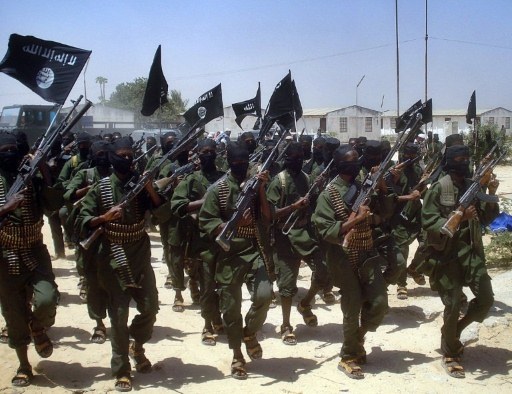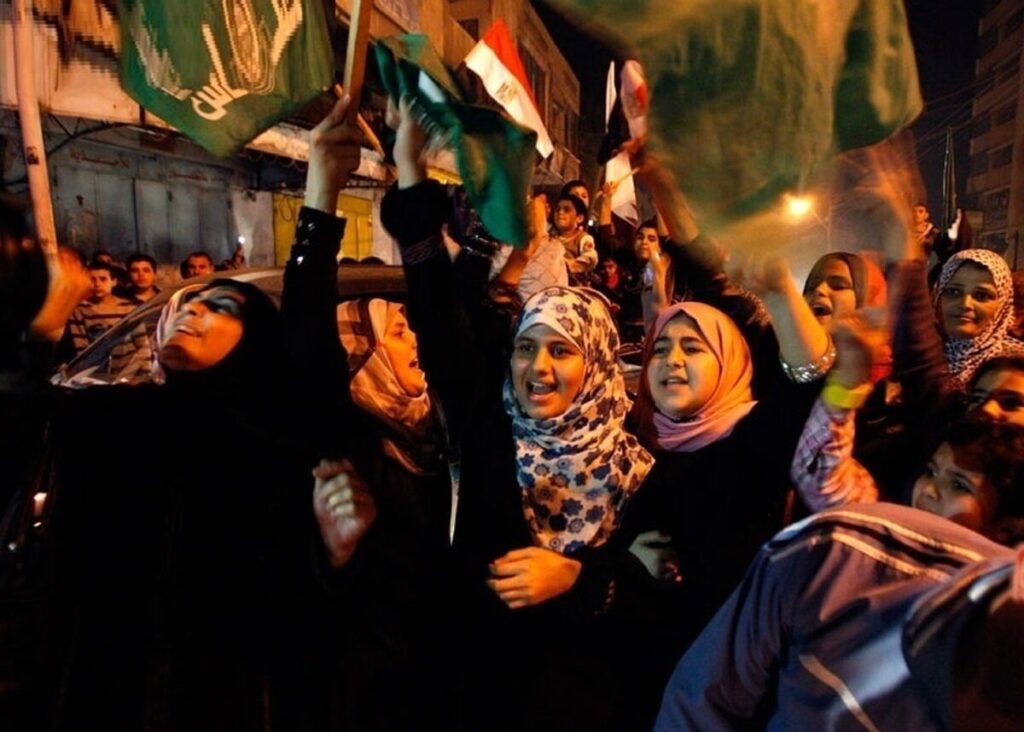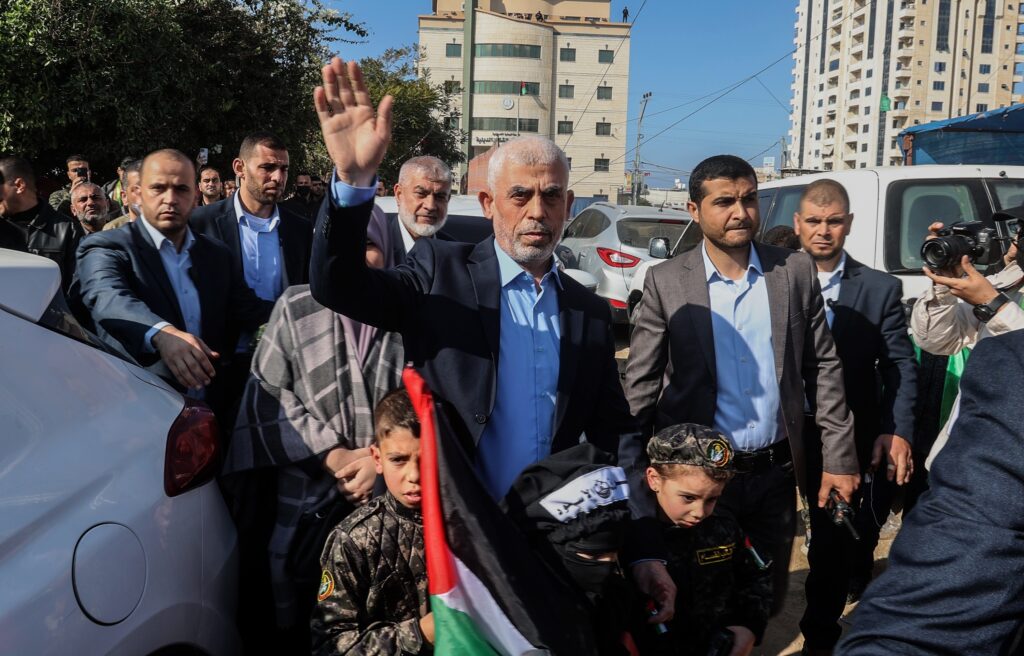UPDATES
An Al-Qaeda Resurgence? / Iraq Deteriorates
Aug 9, 2013

Update from AIJAC
August 9, 2013
Number 08/13 #03
Today’s Update discusses the apparent resurgence of al-Qaeda after 22 US diplomatic missions across the Middle East were forced to close due to intelligence of a serious al-Qaeda plot allegedly originating in Yemen and ordered by al-Qaeda leader Ayman al-Zawahiri. It goes on to discuss the deteriorating situation in Iraq – in part due to al-Qaeda’s increasing efforts there.
First up is a discussion of al-Qaeda’s apparent comeback from former senior FBI counter-terrorism official Ali Soufian. Soufian argues that successful efforts to weaken the core al-Qaeda leadership in Afghanistan and Pakistan has led to the organisation’s shift into affiliated groups – to which not enough attention has been paid. He argues that while the US was correct to shutdown embassies in response to the terror threat, more such alerts are likely unless more is done to tackle affiliates in Africa, the Arabian peninsula and Iraq – several of which have been strengthened by recent prison breaks. For the rest of his analysis of the problem, CLICK HERE.
Tackling the same problem from a slightly different perspective is noted Israeli academic and diplomat Dore Gold. Gold focuses on the resurgence of al-Qaeda in Iraq, especially in the wake of that prison break last week, as well as the growing dominance of the Syrian opposition by the al-Qaeda-affilIated al-Nusra front. He goes on to discuss two specific threats Israel must prepare for – cross-border attacks from Syria, and growing al-Qaeda pressure on the Jordanian monarchy. For his discussion in full, including an assessment of Israel’s abilities to cope with these difficulties, CLICK HERE.
Finally, noted American strategic analyst Kimberley Kagan looks at the situation in Iraq – and sees a deteriorating situation and renewed ethnic conflict. She explores the growing violence and capabilities of al-Qaeda in Iraq and Sunni Islamist groups there, and the transformation of peaceful Sunni protest groups into violent ones thanks to mishandling of the situation by the Maliki government. She also looks at the increasing level of extrajudicial killings by Shi’ite militias and discusses how the US should be relating to the Maliki government in view of the current, worsening situation. For this complete, grim assessment, CLICK HERE.
Readers may also be interested in:
- More reported details on the communication intercept that allegedly sparked the US Embassy alert.
- Some advice on coping with al-Qaeda in Yemen from Washington Institute scholar Daniel Green.
- A new study describing what is know about the role of the Al-Nusra front in the Syrian civil war, especially in the wake of their alleged killing of a rival rebel commander.
- Walter Russell Mead on why the “War on Terror” is here to stay.
- A report on the growing concerns that al-Qaeda may plan to use bombs hidden inside human bodies and has access to undetectable liquid explosives that can added to people’s clothing.
- Reports on two ways Hezbollah has reacted to recent pressure on it, including the EU partial ban – by trying to focus attention back on Israel and by pressuring UN peacekeepers in Lebanon.
- Some examples from the many stories and comments now appearing at AIJAC’s daily “Fresh AIR” blog:
- Ahron Shapiro on some particularly blatant hypocrisy – on the principle Israel can do no right even when it does what Palestinians ask for – at al-Jazeera.
- AIJAC statement in response to controversial remarks on Israel and the Palestinians by Foreign Minister Bob Carr at Lakemba on Thursday, August 8, 2013.
How Al Qaeda Made Its Comeback
The U.S. regarded the terrorist group’s affiliates as local problems—instead of fighting their potent Islamist ideology
Ali Soufan
Wall Street Journal, August 7
Al Qaeda is a group that prizes symmetry and symbolism. When I interrogated Osama bin Laden‘s personal propagandist and secretary, Ali al Bahlul, at Guantanamo Bay in 2002, he confessed that they take great care with timing to ensure maximum publicity. So it comes as no surprise that U.S. intelligence recently intercepted communications among senior al Qaeda operatives suggesting that they are planning attacks this month on embassies and other Western targets.
August is full of symbolic importance for al Qaeda. This week is the anniversary of the Aug. 7, 1998, twin bombings of the U.S. embassies in Kenya and Tanzania—al Qaeda’s first overt and successful attack against the U.S. August is also significant because during the last few days of Ramadan falls Laylat al-Qadr, or the Night of Destiny, which is when the Prophet Muhammad is said to have received the first of his divine revelations.
The reasons why this period is auspicious for al Qaeda are clear. What should be questioned is why, more than a decade after the attacks of Sept. 11, 2001, al Qaeda is still deemed to have high enough capability to force the U.S. to close its embassies and consulates. This seems to be at odds with America’s military and counterterrorism successes, and with the declarations of U.S. officials, including President Obama, that al Qaeda has been nearly destroyed.
The disconnect lies in our failure to appreciate that while al Qaeda central has been badly weakened by U.S. counterterrorism efforts, the group was never close to being extinguished. It adapted. It gave greater power to semi-independent affiliates, such as al Qaeda in the Arabian Peninsula, or AQAP, and to more loosely connected groups, like Boko Haram in Nigeria.
The West made the mistake of failing to effectively tackle these affiliates and their propaganda, dismissing them as local problems irrelevant to the war against al Qaeda. While groups like AQAP and Boko Haram initially did focus their violence locally, terrorists who endorse Osama bin Laden’s jihadist message inevitably move on to the global war against the West. That’s a key lesson that I and my colleagues in law-enforcement and intelligence learned by tracking al Qaeda in the 1990s.
Bin Laden himself started out by focusing on a local issue: U.S. troops in Saudi Arabia, his homeland. Initially the FBI and others in the intelligence community had to battle higher-ups eager to ignore him. He was “just a Saudi financier,” we were told.
Over the past seven years, AQAP has very effectively pursued a populist course in Yemen. The group has focused on populations in the south and east of the country long ignored by the ruling elite of the north, providing them with social services, such as teachers, and much-needed water. This has proved a savvy method for recruiting new members eager to attack Western targets. AQAP is at the center of increased threats against U.S. interests: On Wednesday, the Yemeni government, aided by U.S. drone attacks, reportedly foiled AQAP plots to take over strategic ports and to attack oil pipelines.
Because the connection between al Qaeda and its affiliates was neglected by the West, these terror groups have thrived. So despite all the successes in the war on terror, al Qaeda has maintained a steady stream of new recruits, replacing the members that have been killed or captured by the U.S.
Al Qaeda has also been greatly helped by the Internet and social media, which enables recruitment to take place in chat rooms rather than just in underground guesthouses. The narratives used by al Qaeda and its affiliates all follow the same pattern: Recruiters prey on local grievances, young men’s lack of purpose, and their feelings of anger, humiliation, and resentment. The recruiters combine this with distorted religious edicts, along with conspiratorial messages that blame the U.S. and the West for their problems. With these seemingly clear explanations for their problems, recruits feel empowered and embrace the jihadist mission.
The al Qaeda ideology—blaming the West for the Muslim world’s problems, rejecting anyone who doesn’t follow al Qaeda’s specific beliefs and claiming that terrorism is the only way to deal with opponents—was previously found mainly in the Persian Gulf and Afghanistan. Now it has spread, from West Africa to Southeast Asia. Combating the group’s ideology in an effective manner has been the weak link in the West’s counterterrorism strategy.
How to combat al Qaeda’s recruiters? Give vulnerable communities the proper tools to stand up against the group and its affiliates. This means not only military and intelligence aid from the U.S., but also targeted educational tools to rebut false religious messages. The West also needs to provide political and economic support, tailored to counter the power vacuums that terrorists exploit.
Last week, according to press reports, al Qaeda leader Ayman al Zawahiri promoted Nasser al Wahishi—a one-time bodyguard for bin Laden and later head of AQAP—to be al Qaeda’s general manager. Al Wahishi had been arrested by the Yemenis in 2003 as part of a U.S. offensive to disrupt an al Qaeda plot to bomb the U.S. Embassy in Sanaa and to assassinate the American ambassador.
In February 2006, al Wahishi and 22 other prisoners escaped from a maximum-security Yemeni jail by digging a 140-foot tunnel to the women’s bathroom of a nearby mosque. Among the escapees was Jamal al Badawi, who is on the FBI’s most-wanted list for his role in the October 2000 bombing of the USS Cole, which killed 17 American sailors. That 2006 escape was a turning point for the group. Al Wahishi and AQAP have been responsible for several attacks in Yemen, including one in 2008 on the U.S. Embassy in Sanaa, killing 19 people.
To top it all off, al Qaeda’s ranks have also been bolstered in recent weeks by brazen, large-scale prison breaks linked to the group in Iraq, Libya and Pakistan. Reports estimate that as many as 500 inmates escaped in Iraq, 1,000 in Libya and 248 in Pakistan.
The U.S. and others governments have been right in recent days to declare a high terror alert and to close embassies. But it shouldn’t have come to this. Until the U.S. starts combating the narratives that allow al Qaeda and its affiliates to continually recruit and retain members, these types of shutdowns and panics will become more routine.
Mr. Soufan, an FBI supervisory special agent from 1997 to 2005, is chairman of the Soufan Group, a strategic intelligence consultancy. He is the author of “The Black Banners: The Inside Story of 9/11 and the War Against al Qaeda” (Norton, 2011).
Back to Top
————————————————————————
The Return of al-Qaida
Dore Gold
Israel Hayom, August 2
Anyone who delivered a eulogy for al-Qaida in the Middle East has been proven wrong by recent developments • Israel can deal with the renewed regional threat of jihadist organizations involved in Syria, but must retain all elements of its capabilities.
In the Daily Beast last week, Bruce Riedel, who served for years as a CIA analyst on the Middle East, wrote an important article with the dramatic headline, “Al-Qaida is back.” Riedel, who today works for the Brookings Institution, was taking a position against the conventional wisdom, that was widely heard in Washington prior to the 2012 elections, that the U.S. had al-Qaida “on the run”. Riedel’s claim was based on his examination of the outcome of a coordinated attack by al-Qaida’s Iraqi affiliate against two high security prisons, which led to the escape of at least 500 al-Qaida members.
In breaking into the Abu Ghraib and Taji Prisons, al-Qaida used mortars and suicide bombers. According to its own account, its forces detonated 12 car bombs. The Iraqi Army proved to be useless as it failed to stop the assault. Former U.S. Ambassador to Iraq James Jeffrey was quoted in The Wall Street Journal saying that if al-Qaida could “take down Abu Ghraib,” it could also “take down the Green Zone in Baghdad”, where the U.S. Embassy was located.
In the meantime, internal security in Iraq has been deteriorating with about 80 car bombs and suicide bombing attacks employed. Over 1,000 Iraqis have been killed in May, the highest number in five years. Understanding that the escape of al-Qaida operatives from an Iraqi prison had broader implications beyond Iraq itself, Interpol issued an alert that the escape constituted a “major threat to global security.” The New York Times ran an editorial on July 29 with the title “Al-Qaida in Iraq scores big,” which reached the conclusion that the “attacks showed the fearsome and growing strength” of the organization.
Al-Qaida in Iraq was once a formidable terrorist organization, but until this year it appeared to be in decline. It was established in 2003, after the U.S. invasion of Iraq. It was headed by Abu Musab Zarqawi, a Jordanian who had fought in Afghanistan, who was picked by Osama bin Laden to lead al-Qaida in Iraq. Zarqawi’s focus had always been broader and included the surrounding countries; the name of his first organization that he set up in Afghanistan was Jund al-Sham (the Army of the Levant) whose name gave away his territorial interests. His goal had been to support the emergence of a single Islamic state across the countries of the Levant. Zarqawi had been eliminated by U.S. forces in 2006. His organization was severely weakened when the U.S. increased its force levels with the “surge” in 2007, under Gen. David Petreaus, at which time it increased the pace of its operations in western Iraq.
The U.S. withdrew the last of its combat units from Iraq in 2011. The situation on the ground could not remain static. Moreover, with the outbreak of the Syrian uprising, a new opportunity for al-Qaida in Iraq was created. According to Riedel, al-Qaida in Iraq sent one of Zarqawi’s protégés, who used the nom de guerre Muhammad al-Golani, to set up Jabhat al-Nusra La’al al-Sham (the Assistance Front to the Residents of Greater Syria, known as Al-Nusra Front) as al-Qaida in Iraq’s Syrian affiliate. According to American and British analysts, al-Golani is believed to be a Syrian jihadist who fought in Iraq but did not go back to Syria until he was sent to lead Al-Nusra Front. Another emerging leader has been Zarqawi’s Jordanian brother-in-law, known as Abu Anas al-Sahaba. The same source asserts that Iraqis and Jordanians represent the largest component of foreign jihadists fighting for Al-Nusra Front in Syria.
Al-Nusra Front quickly became the leading military force fighting the regime of Bashar Assad. It was responsible for the most daring bombing attacks in the heart of Damascus, like its use of car bombs against the headquarters of Syrian Air Force Intelligence in March 2012 and the July 2012 bombing attack that killed Syria’s security chiefs, including Assad’s brother-in-law, Assaf Shawkat. While the West remained indecisive about supplying weapons to the more moderate elements of the Syrian opposition, Al-Nusra Front was backed by al-Qaida in Iraq with arms, money and manpower. At one point the two organizations disagreed about their relationship with each other, since Al-Nusra Front sought more independence. Today both of them stress that they are united and work as one.
The revival of al-Qaida in Iraq is part of a global growth of the organization’s military capabilities. Much was written last year about al-Qaida in the Islamic Maghreb and its operations in Algeria, Mali, and Libya. In Pakistan this week there was another prison break releasing jihadists from the Taliban and one of the most dangerous militant groups. It is no wonder that the U.S. decided this week to close American diplomatic missions across the Middle East in light of “credible” intelligence it received of new al-Qaida threats.
There are two important implications for Israel that come from al-Qaida in Iraq reconstituting its power. First, since it was formed, al-Qaida in Iraq has been a direct threat to Jordan. In November 2005, al-Qaida in Iraq attacked three Jordanian hotels in Amman, killing nearly 60 people. Zarqawi then issued an audiotape threatening King Abdullah personally. A year earlier, an associate of Zarqawi confessed to planning an attack by using chemical weapons near the headquarters of Jordan’s General Intelligence Directorate.
This anti-Jordanian orientation of al-Qaida in Iraq and its Syrian affiliate is continuing. Both organizations use names that indicate that their aspirations extend to the area of Greater Syria, ignoring present-day borders. The Jordanians are clearly aware of the threat they face along their northern border; in October 2012, they arrested eleven Jordanians who had infiltrated from Syria and previously been trained by al-Qaida explosive experts in Iraq. They planned to launch suicide bombing attacks in two shopping malls in Amman and then move against a prosperous district where many foreign diplomats were located. A few days earlier, the Jordanians stopped two cousins of Zarqawi, who were crossing the border returning home from the war in Syria.
Second, the revival of jihadist organizations in Syria, like Al-Nusra Front, can evolve into a challenge for Israel. In a speech to the Jerusalem Center for Public Affairs on June 18, Major General NItzan Alon, head of the IDF Central Command disclosed that the organization Al-Nusra Front had in fact tried to infiltrate Jordan. He explained that part of his mission was to make sure that the organization did not go through Jordan and enter the West Bank. The idea that an al-Qaida branch in Syria or Iraq could become a threat to Israel is not new. In 2005, al-Qaida Iraq set up a forward position in the Jordanian city of Irbid and from there it sought to recruit West Bank Palestinians. One such attempt was thwarted by Israeli security services back then. There is reason to believe that this remains the intention of al-Qaida’s Syrian and Iraqi affiliates. A book in Arabic outlining the plan of action of Al-Nusra Front, called the “Regional War Strategy for the Land of the Levant” stresses that “Syria is the key to a change in the Levant, including in occupied Palestine, and the Levant is the key to change on the Arab world and afterwards the Islamic world.”
Israel has the capabilities today to deal with a renewal of the rising regional threat of jihadist organizations involved in the Syrian conflict. But it must retain all elements of those capabilities and not assume that they are no longer needed. This observation holds for both the debate over Israel’s defense budget and its territorial requirements in any peace arrangement with the Palestinians. The return of al-Qaida is just another reminder how the security environment along Israel’s borders can rapidly change. Anyone who delivered a eulogy for al-Qaida in the Middle East has been proven wrong by recent developments. The point to be internalized is that what is going on in Iraq and Syria today can be consequential for Israel, even if it appears to be happening far off over the horizon.
Back to Top
————————————————————————
The Iraq War Is Not Over
Since the departure of U.S. troops, it’s only heated up.
Kimberly Kagan
Vol. 18, No. 40
Sectarian war has reignited in Iraq. Iranian-backed Shia militias have remobilized, Al Qaeda in Iraq (AQI) is conducting an intensive and escalating campaign of spectacular attacks against Shia targets, and some of the former Baathist insurgents are staging an effective campaign against the Iraqi Security Forces in the vicinity of Mosul.
The deteriorating security results from two trends that have caused both Sunni and Shia extremists to mobilize and gain traction. The first is Prime Minister Nuri al-Maliki’s deliberate marginalization and ouster of prominent Sunni national politicians, which has led to a six-month-long Sunni protest movement. The killing of 53 protesters and wounding of another 200 in Hawijah on April 23 caused some protesters to rejoin the insurgency. The second trend is
the radicalization and mobilization of Shia militants, both to serve in Syria and to oppose Al Qaeda in Iraq.
Sunni extremists
Prime Minister Maliki’s consistent targeting of his Sunni political rivals has removed two senior Sunni politicians from his cabinet. Former vice president Tariq al-Hashemi is living in exile and has been sentenced in absentia to death on terrorism charges brought after the arrest and torture of his bodyguards the day U.S. forces left Baghdad in 2011. Former finance minister Rafi al-Issawi, whose bodyguards were similarly targeted in December 2012, has led the Sunni protest movement, which has spread from Anbar all across the northern provinces and into Baghdad.
That nonviolent protest movement has been radicalizing since Maliki postponed provincial elections in Anbar and Ninevah. Those elections were finally held on June 20, months after the rest of the country had voted. And the movement has turned increasingly violent since the January killing of several protesters in Fallujah and a deliberate military maneuver on the protest camp in Hawijah in April that left 200 casualties. After these events, Maliki attempted to arrest tribal and protest movement leaders, generating further active and passive support for AQI and other extremist groups, such as the neo-Baathist organization Jaysh Rijal al-Tariq al-Naqshabandia (JRTN).
Since January, AQI and the Islamic State of Iraq (ISI) have conducted spectacular attacks in Baghdad and the south, such as those that rocked Mahmudiya, Hillah, Madain, Nasiriyah, Kut, and Basra on June 10, resulting in more than 180 casualties. And since March, many of their signature car and truck bombs have targeted Shia religious sites and neighborhoods. This sectarian targeting has increased over the past month, as Shia militia groups have mobilized in Baghdad, conducting execution- style killings of Sunnis and morality killings in Shia neighborhoods. AQI/ISI attacks now occur nearly weekly.
AQI and ISI still function as terrorist groups, and Ansar al Islam, another Sunni extremist movement, is increasingly active as well. But the main body of the Sunni insurgency even in 2006 consisted of former Baath party members, often with military backgrounds, who conducted small-arms attacks and planted improvised explosive devices (IEDs) against U.S. and Iraqi Security Forces. The JRTN has been present at protest sites, including the one at Hawijah where Iraqi Security Forces killed numerous civilians. Since that incident, there has been an uptick in the number of highly accurate small-arms attacks inside Mosul proper, as well as IEDs in Qayarah, the approach to Mosul from the south. These attacks primarily target Iraqi Security Forces. Given the similarity of historical and current attack patterns, it appears that the JRTN is now resurgent in Mosul and fighting the Iraqi Security Forces.
As Iraq analyst Stephen Wicken notes,
The protesters have been dissipating from the protest sites this week, something that should be expected at this time, as the provincial elections in Anbar and Ninevah were held on 20 June. But the rising violence trends, and in particular, the attacks that do not bear the AQI/ISI hallmark, suggest that some Sunni have given up on the political process and are resorting to arms to resist the Maliki government. This trend has accelerated also after the fall of al Qusayr in Syria, which, because of the involvement of Hezbollah, has become a rallying cry for Sunni in the region. And as Maliki deploys ISF into Anbar and Ninevah in order to secure the provincial elections, the opportunity for violent opposition to the ISF increases.
There is thus a new inflection point in the Iraq conflict. The peaceful Sunni protest movement appears to be becoming an armed insurgency in northern Iraq.
Shia militias
Another Iranian-backed Shia militia, Asaib Ahl al Haq (AAH), has been responsible for the deaths of many American soldiers through its lethal Explosively Formed Projectiles. This group too began remobilizing in Baghdad in early May. AAH has been fighting alongside Lebanese Hezbollah at a prominent Shia shrine in Damascus since 2012. AAH’s intensified presence in Baghdad is roughly concurrent with Lebanese Hezbollah’s mobilization of a 2,000-man fighting force sent to Syria to reinforce the siege of Qusayr.
Shia militias have mobilized in Iraq and have resumed extrajudicial killings in Baghdad, Diyala, and Hillah. Since parading in a Baghdad soccer stadium ostensibly to celebrate its tenth anniversary, in front of leader Qais al Khazali, who was long in U.S. custody for his role in the murder of five American soldiers in 2007, AAH took to the streets.
The groups are responding in part to the wave of Al Qaeda in Iraq attacks on May 20 and 27, an escalating campaign of suicide bombings. The first attacks targeted the approaches to Baghdad and several sites around the country, the second hit the Shia and mixed fault-line neighborhoods that were contested in 2006-07.
By early June AAH had resumed some of the violent behaviors that characterized Shia militant attacks against Iraqis in 2006-07: establishment of false checkpoints, ID checking, kidnapping people from their cars or public places, and executing them. For example, two people were kidnapped from a bus stop near Baghdad University in the late afternoon, and their bodies were found in western Baghdad at a traditional 2006 dumping site, hands bound, shot in the head or chest, a few days later. AAH has also resumed executions with silenced weapons of other targets
with an intent to intimidate: whether pulling shopkeepers from their homes and killing them and their families; executing teachers; executing liquor store owners and conducting other morality policing. These events have occurred in areas not far from Sadr City, as well as in Diyala, in places familiar during the violence of 2006–07. The militias are evidently reasserting their control of East Baghdad while projecting checkpoints into West Baghdad.
Some of the militia activity is occurring within sight of Iraqi Security Forces checkpoints. Maliki is either tolerating it or has lost control over the escalation. In any case, politicians will not be able to check this violent retribution, which has a dynamic of its own—as Americans learned all too well in the wake of the Samarra mosque bombing in 2006.
Not all Shia groups are fanning the flames of sectarian reprisals. Even so, the current mobilization is unlikely to be limited. Some Shia militias are targeting Sunni mosques with IEDs in retribution for AQI attacks. The mobilization of AAH makes it hard for the Sadrist fighters to stay neutral, even when ordered to do so by their leader, Moktada al-Sadr, who has repeatedly instructed them not to reignite sectarian conflict. Rogue Sadrist elements—against Sadr’s orders—have paraded in areas south of Baghdad.
In contrast, AAH’s political bureau chief, Adnan al-Dulaimi, stated that AAH “is ready for [mobilization] and we are ready to protect our people.” Indeed, friction between the Sadrist Trend and its AAH splinter is running high, after AAH attempted to assassinate Hazem al-Araji, one of the most prominent Sadrists, near the Kadhimiya shrine, a sacred site in Baghdad where he has served as a key patron.
The Sadrist Trend has allied itself with Sunni political parties and Kurds in Diyala and Baghdad to control the leadership of the newly elected provincial councils, freezing out Maliki’s coalition. This odd alliance creates new opportunities for Sunni political participation in two swing provinces, where the sectarian fault lines are deepest. But it is difficult to imagine a political settlement that would gain the support of the remobilizing former Baathist elements or the rekindled AQI/ISI.
The United States
The United States must no longer unconditionally back Maliki, who has created this circumstance by choosing to target his Sunni political opponents and by tolerating violence against civilians in the protest movement. The United States cannot simply support the Iraqi Security Forces, which are tolerating the Shia militants willing to kill Sunni civilians. Iraqi Security Forces, even if supported by the United States, cannot target AQI without being able to separate it from the Sunni population.
Secretary of State John Kerry has used the limited leverage that the United States has to try to stop Iraq from allowing Iranian overflights to Syria. This is the least efficient use of our leverage, even though the strategic principle is sound, because Maliki has neither the capability nor the will to stop the Iranian regime from supporting Assad. It is no surprise that the Iranian Revolutionary Guards Quds Force has staged inspections of its own aircraft to prove that Iraq is not permitting arms to transit its airspace.
There are, however, ways that the United States could use its leverage to influence the behavior of the Maliki government, although not to arrest the violence entirely. First and foremost, the United States needs to condition the provision of arms, equipment, and training to the Iraqi Security Forces on Maliki’s respect for the representative political system, humanitarian treaties Iraq has signed, and inclusive political solutions. These include dropping his legal charges against the cabinet members and protest leaders, meeting the reasonable demands of the protesters for transparency and de-Baathification measures, and implementing the promised terms of the 2010 Erbil Agreement by which he achieved the premiership. It is also vital that Maliki not tolerate Shia militant groups.
Second, the United States can block the United Nations from lifting Iraq’s onerous Chapter VII status, even though Kuwait has at long last agreed to support the change, until Maliki makes those concessions. Those who argue that conditioning aid is difficult must note that our failure to condition our aid has empowered Maliki disproportionately. His deliberate disenfranchisement of the Sunni population is the main accelerant to insurgency in Iraq.
Iraq sits at the heart of the Middle East and straddles the sectarian divide. The United States once hoped that, with American help, Iraq could decelerate sectarian conflict, serve as a buffer against an expanding Iran, and be an ally against al Qaeda. The United States had largely achieved those political conditions—fragile though the achievement was—by the time American troops departed. But that is not the Iraq we have today. The United States must no longer imagine that it has a friendly government in Baghdad with which to work, or that Iraq is stable enough to buffer the region against the sectarian war that is brewing in its heartland.
Kimberly Kagan is the founder and president of the Institute for the Study of War.











